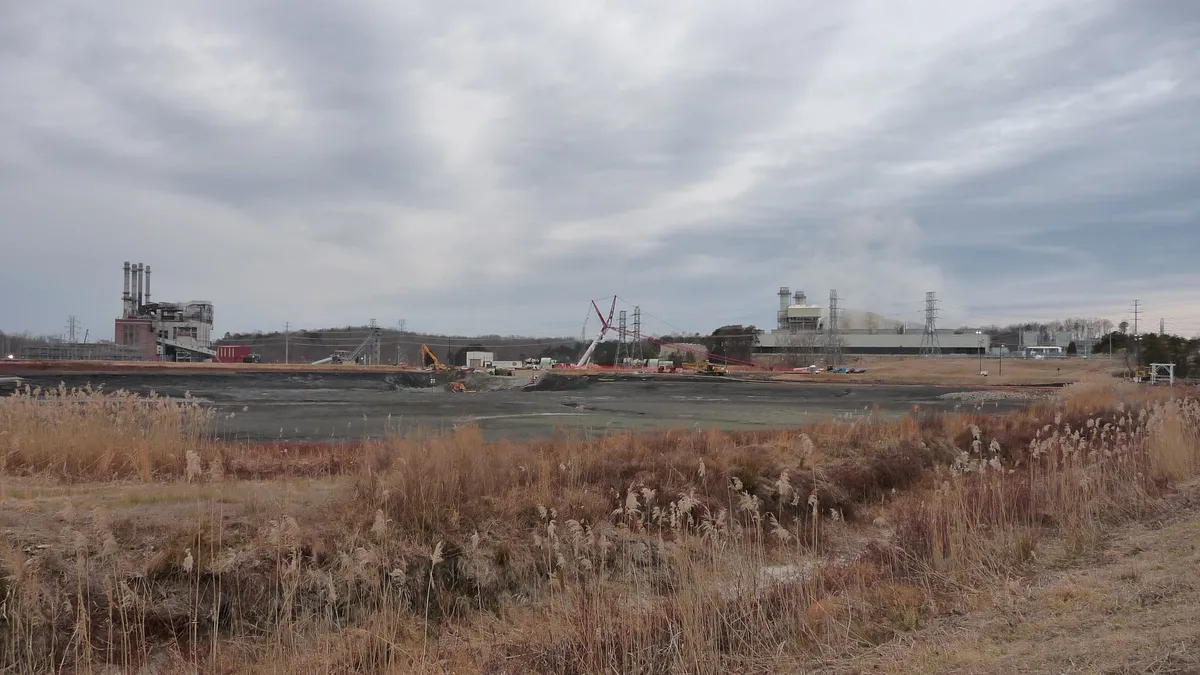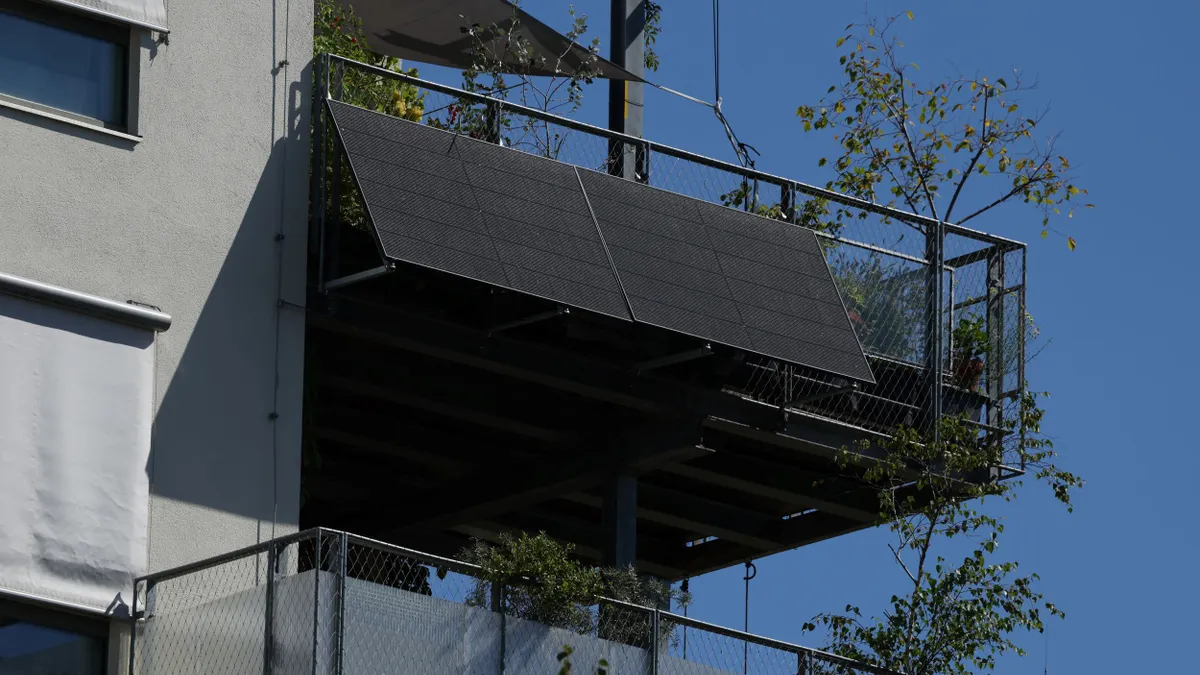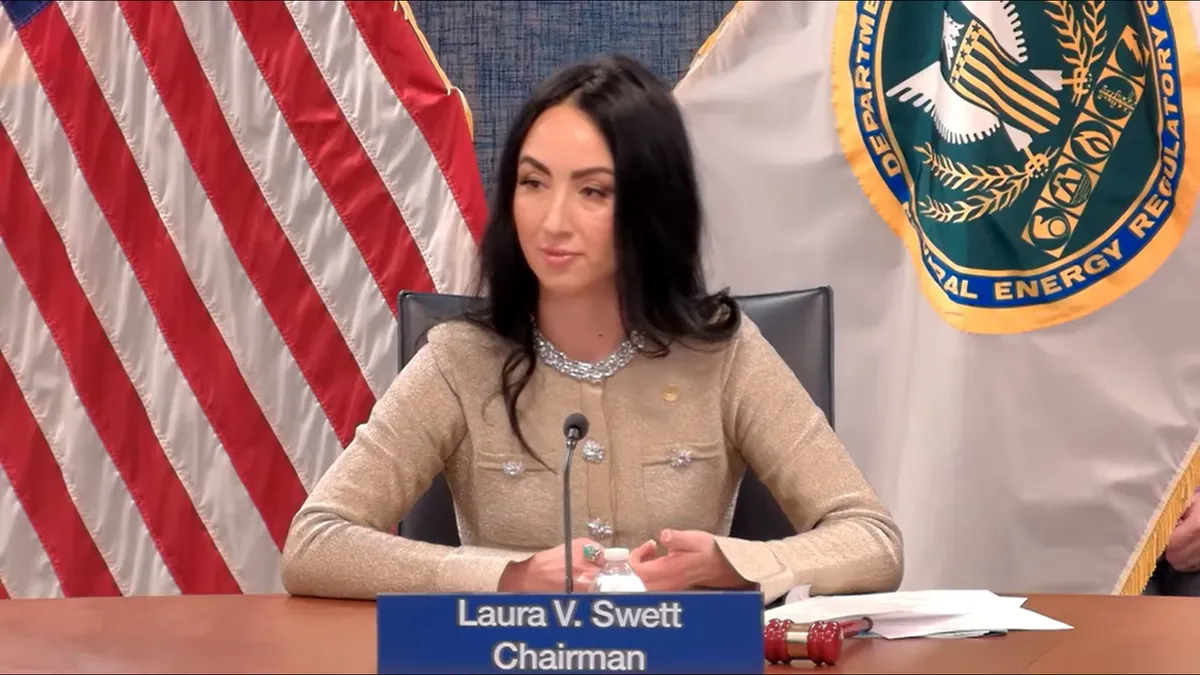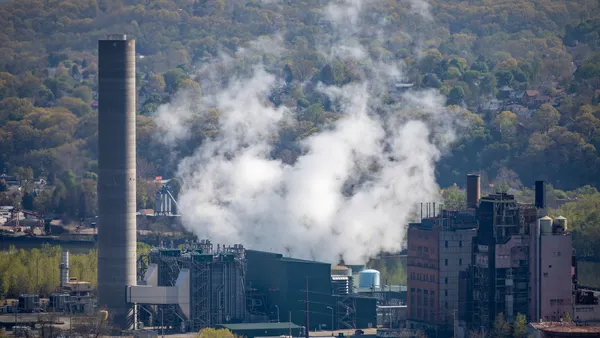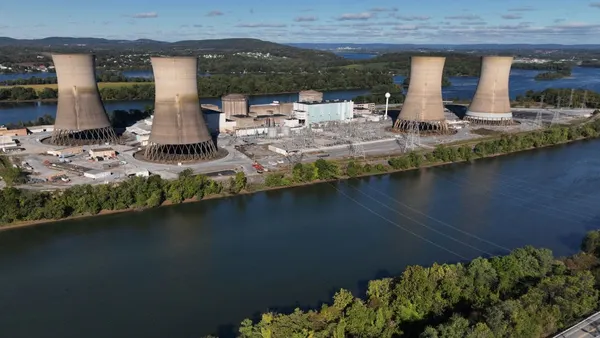Dive Brief:
-
The U.S. Environmental Protection Agency on Tuesday proposed denying requests from three Midwest coal-fired power plants to continue dumping coal ash in unlined surface impoundments, a move that could lead to the plants' early retirements.
-
The EPA also tentatively determined that four out of 57 applications to extend the deadline for meeting its coal ash requirements were incomplete. Once the EPA issues final decisions for the incomplete and denied applications, the owners of the seven plants will have 135 days to stop putting coal ash in the impoundments.
-
The EPA is interpreting and enforcing its coal ash rules for the first time since they were passed in 2015, during the Obama administration, according to Earthjustice. The EPA's action will set a precedent for more than 200 U.S. coal-fired power plants and the nearly 750 ponds and landfills where their ash is stored, the advocacy group said.
Dive Insight:
Coal-fired power plants have been under financial pressure for years, partly because of their generally high operating costs and pollution-control requirements.
Under a rule finalized in mid-2020, the EPA allowed utilities to continue dumping coal ash from their power plants into unlined basins until April 11, 2021.
Coal ash contains toxins like mercury, cadmium and arsenic, and the impoundments where it has been dumped are a source of groundwater contamination, according to the EPA.
The agency received 57 applications to extend the coal ash deadline, and 53 of them were complete, the EPA said Tuesday.
The EPA proposed rejecting three of them and conditionally accepting one, with more determinations expected in "the coming months."
The EPA said it proposed denying three requests because of potential inadequate groundwater monitoring, cleanup, and closure activities, including a lack of monitoring wells, improper monitoring techniques, faulty identification of other sources of groundwater contamination, and insufficient evaluations of clean-up technologies, which could prevent proper groundwater cleanup.
Facilities affected by the proposed denials are
- ArcLight Capital Partners' 2,600-MW Gavin plant in Cheshire, Ohio;
- Ohio Valley Electric Corp.'s 1,300-MW Clifty Creek plant in Madison, Indiana; and
- Alliant Energy's 725-MW Ottumwa plant near Ottumwa, Iowa.
If they don't receive deadline extensions, the owners of the power plants said they would stop operating the facilities, according to the EPA.
"Coal ash surface impoundments and landfills must operate and close in a manner that protects public health and the environment," EPA Administrator Michael Regan said in a statement. "For too long, communities already disproportionately impacted by high levels of pollution have been burdened by improper coal ash disposal."
The EPA said its proposed determinations restate the agency's "consistently held" position that surface impoundments or landfills cannot be closed with coal ash in contact with groundwater.
The EPA proposed approving East Kentucky Power Cooperative's deadline extension request for its 1,350-MW H.L.Spurlock plant in Maysville, Kentucky, as long as it fixed groundwater monitoring issues. The utility wants to keep using an unlined ash pond until Nov. 30, according to the EPA.
The EPA also proposed finding that four applications were incomplete, which would force the power plant owners to stop depositing ash at their unlined basins. The plants affected are
- Ameren Missouri's 975-MW Sioux Energy Center in St. Charles County, Missouri;
- Ameren Missouri's 540-MW Meramec power plant in St. Louis;
- City, Water, Light, and Power's 200-MW Dallman plant in Springfield, Illinois; and,
- Lansing Board of Water and Light's 160-MW Erickson plant in Lansing, Michigan.
The EPA said Greenidge Generation's plant in Dresden, New York, was ineligible for an extension because it now runs on natural gas. The plant supplies power to a bitcoin mining operation, according to the agency.
The EPA told the owners of several facilities that the agency has information about "the possible presence" of issues that could affect health and the environment, such as improper groundwater monitoring, insufficient cleanup information and the regulation of inactive surface impoundments.
Comments on the proposed findings are due Feb. 23.
Frank Holleman, a senior attorney with the Southern Environmental Law Center, said the proposed decisions set precedents that will affect utilities like Alabama Power, the Tennessee Valley Authority and PowerSouth Energy Cooperative, which the group said plan to leave more than 110 million tons of coal ash in unlined, leaking pits at sites in Alabama.
The Edison Electric Institute, a trade group for investor-owned utilities, didn't return a request for comment.



